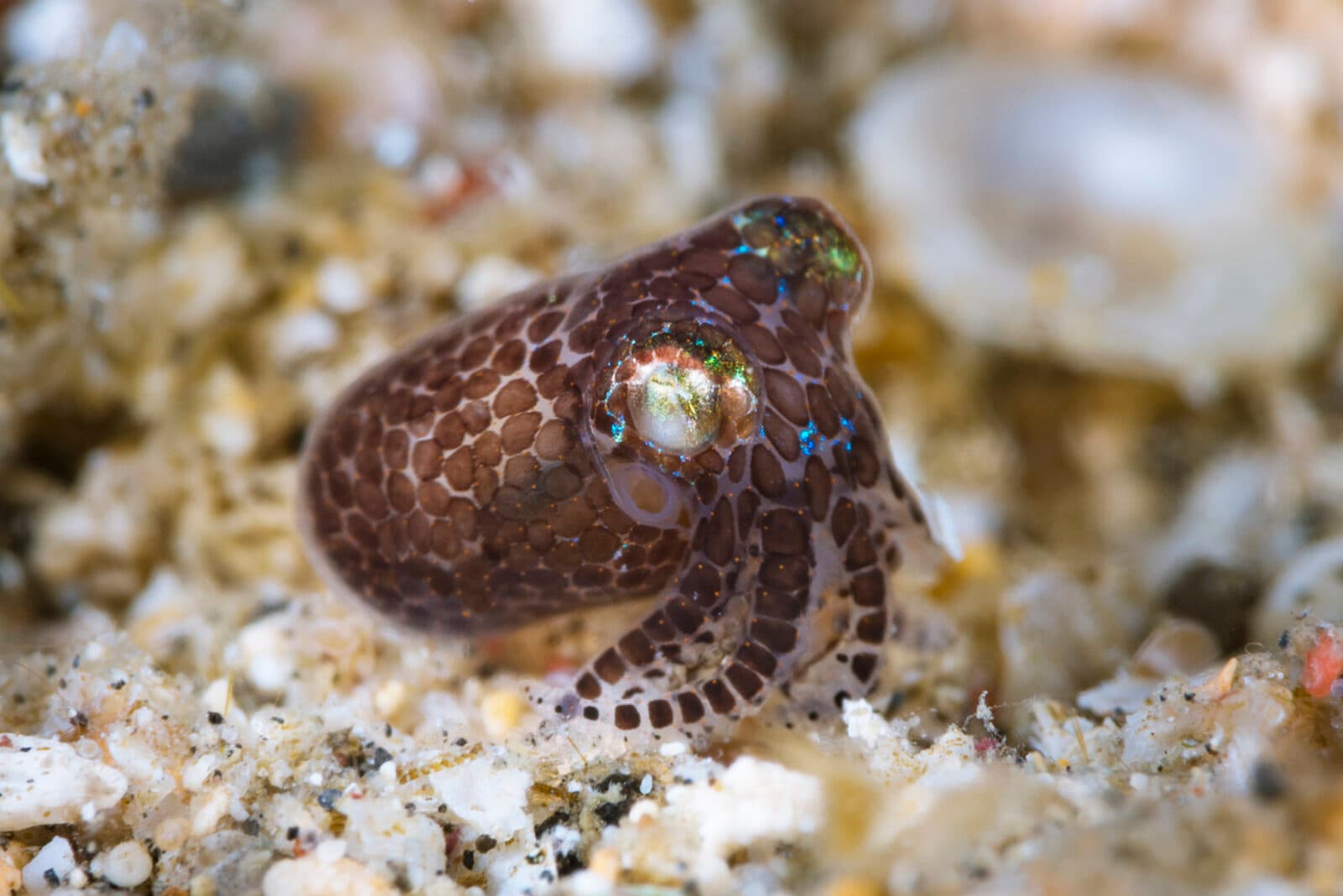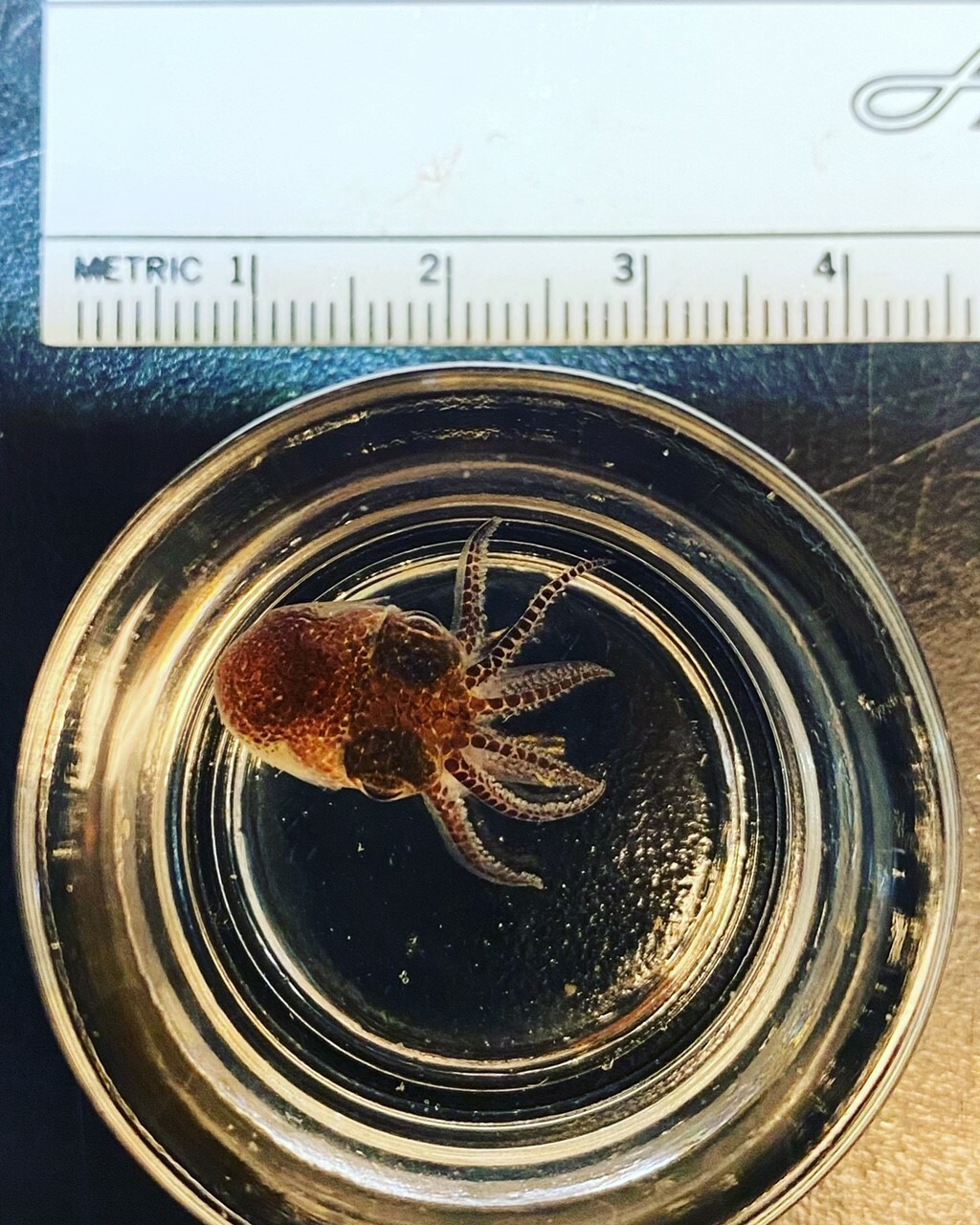What a Squid Hears
Kavli-Grass Fellow Rosalyn Putland studies these invertebrates’ hearing capabilities

Bobtail squid are tiny spotted cephalopods, with adults a mere 2 inches long. Like their relatives such as octopus and cuttlefish, these invertebrates have well-developed nervous systems biologists have studied for decades. But their auditory system is still largely unknown. What can they hear underwater? Are they sensitive to noise pollution? Could it affect their development?
“These are fascinating questions that have implications for how neural development is influenced by dynamic experiences in cephalopods,” said Angie Michaiel, Ph.D., science program fellow at The Kavli Foundation. “We want to support scientists who explore fundamental questions in neuroscience such as this.”
The Kavli Foundation has a new partnership with the Grass Foundation. Its most recent support is a fellowship at the Marine Biological Laboratory, home of the Ecosystems Center. The summer 2022 fellowship has been awarded to Rosalyn Putland, Ph.D., a senior scientist at the Centre for Environment, Fisheries, and Aquaculture Science in England. She studies the effects of sound pollution on aquatic life, with a special interest in understudied species.

Putland will be studying the neural response to noise exposure in hummingbird bobtail squid (Euprymna berryi), gathering baseline measurements to assess hearing capabilities and noise thresholds throughout the first 120 days of these rapidly maturing cephalopods.
“We know a lot about marine mammals,” says Putland. “And we’re learning a lot more about fishes, but we know very little about the effect of noise pollution on invertebrates.”

Since invertebrates comprise approximately 90% of marine species, there is plenty to discover. “The field is very small,” says Putland. “It’s a pioneering area.”
Putland brings her interdisciplinary background to the table to chip away at the complicated and intertwining research questions of neurobiology and environmental sciences. She did her undergraduate and master’s work in marine biology, and her Ph.D. on the physics of underwater acoustics. Her postdoctoral work at the University of Minnesota, Duluth, concerned the sensory physiology of fishes.
“You have to look at things from all different levels. In a lot of my day-to-day work I’m looking at the ecosystem as a whole and the effects we may be having as humans in these environments. But you have to break it down and consider the components of that ecosystem, how they are being affected, and within a species level, at what sensory system they’re being affected. What is their sensory perception; what are they perceiving in their environment? Because if we can’t answer these basic research questions, we can’t scale it up to understand larger systems.”
The impact of environmental variations on neural systems is a growing area of inquiry, in need of increased interdisciplinary and transformative research to address both mechanistic understanding of neural systems and how they are affected by their surroundings.
Update, Feb. 2023: Putland and her collaborators published their findings in Frontiers in Marine Science.